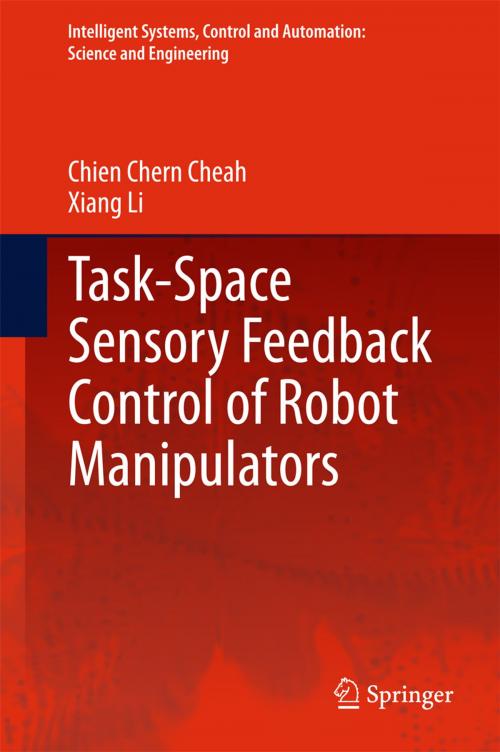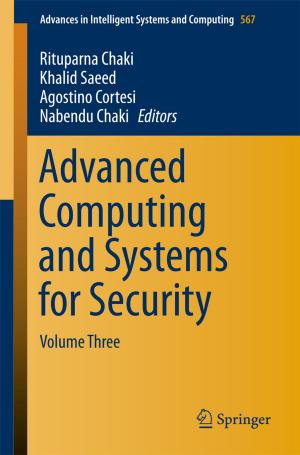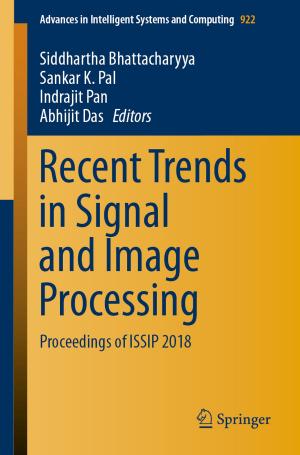Task-Space Sensory Feedback Control of Robot Manipulators
Nonfiction, Science & Nature, Science, Other Sciences, System Theory, Technology, Automation| Author: | Chien Chern Cheah, Xiang Li | ISBN: | 9789812870629 |
| Publisher: | Springer Singapore | Publication: | April 9, 2015 |
| Imprint: | Springer | Language: | English |
| Author: | Chien Chern Cheah, Xiang Li |
| ISBN: | 9789812870629 |
| Publisher: | Springer Singapore |
| Publication: | April 9, 2015 |
| Imprint: | Springer |
| Language: | English |
This book presents recent advances in robot control theory on task space sensory feedback control of robot manipulators. By using sensory feedback information, the robot control systems are robust to various uncertainties in modelling and calibration errors of the sensors. Several sensory task space control methods that do not require exact knowledge of either kinematics or dynamics of robots, are presented. Some useful methods such as approximate Jacobian control, adaptive Jacobian control, region control and multiple task space regional feedback are included. These formulations and methods give robots a high degree of flexibility in dealing with unforeseen changes and uncertainties in its kinematics and dynamics, which is similar to human reaching movements and tool manipulation. It also leads to the solution of several long-standing problems and open issues in robot control, such as force control with constraint uncertainty, control of multi-fingered robot hand with uncertain contact points, singularity issue of Jacobian matrix, global task-space control, which are also presented in this book. The target audience for this book includes scientists, engineers and practitioners involved in the field of robot control theory.
This book presents recent advances in robot control theory on task space sensory feedback control of robot manipulators. By using sensory feedback information, the robot control systems are robust to various uncertainties in modelling and calibration errors of the sensors. Several sensory task space control methods that do not require exact knowledge of either kinematics or dynamics of robots, are presented. Some useful methods such as approximate Jacobian control, adaptive Jacobian control, region control and multiple task space regional feedback are included. These formulations and methods give robots a high degree of flexibility in dealing with unforeseen changes and uncertainties in its kinematics and dynamics, which is similar to human reaching movements and tool manipulation. It also leads to the solution of several long-standing problems and open issues in robot control, such as force control with constraint uncertainty, control of multi-fingered robot hand with uncertain contact points, singularity issue of Jacobian matrix, global task-space control, which are also presented in this book. The target audience for this book includes scientists, engineers and practitioners involved in the field of robot control theory.















